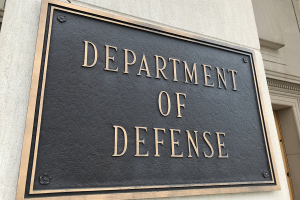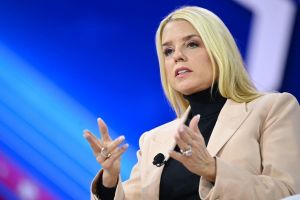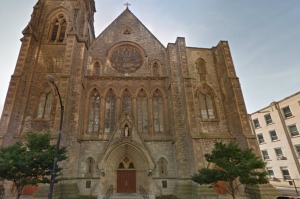Globalism Is Anti-Christ, Demonic, Theologians Argue
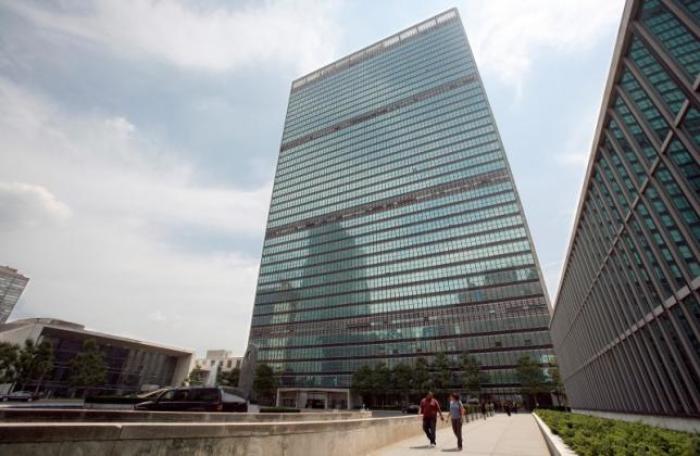
Prominent theologians and scholars are saying this week that while globalism may be a buzzword this election season, too few understand the demonic forces driving this ideology.
As The New York Times reported Monday, until relatively recently it was rare to hear people referred to as "globalists" but the label is more common now. And while many globalists claim to have the interests of the entire world at heart, the irony is that they have become a tribe of sorts; and they are a wealthy, elite, and powerful tribe for whom national borders are an impediment to their agenda.
While many definitions for globalism exist, a wide chasm separates 1) necessary global exchanges in an increasingly interconnected world, like trade, legal immigration, and the cooperation and sharing of ideas across borders, and 2) globalism as a secular humanistic religion of sorts that envisons a one-world government.
For the second definition of globalism, such views are antithetical to a Christian worldview, according to some, even as the Church itself is global and the Kingdom of God is not constrained by national borders.
"A major objection to globalism from a spiritual and biblical point of view is that many of the globalists are pushing for a global value system," said Wallace Henley, senior associate pastor of 2nd Baptist Church in Houston, Texas in a Tuesday phone interview with The Christian Post.
Henley, who has written recently on CP about national borders (see part 1 here, part 2 here, and part 3 here) further explained that there is an anti-Christ spirit at work in the world that opposes the Kingdom of Christ, which is righteousness, peace, and joy in the Holy Ghost.
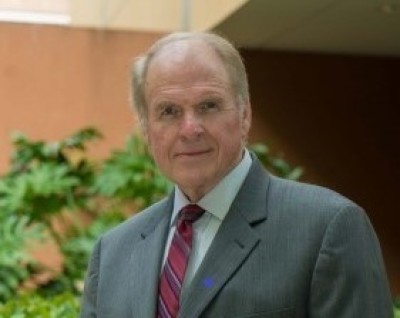
"The Kingdom of the Lord Jesus Christ is the highest form of civilization. The anti-civilization represented by anti-Christ is the opposite of that. So if the kingdom of Christ is righteousness, the anti-civilization is evil and injustice. If the kingdom of Christ is peace, the Kingdom of anti-Christ is conflict. If the Kingdom of Christ is joy in the Holy Spirit, anti-civilization is misery."
In a September 4 American Thinker article titled, "Globalism: the Religion of Empire" theologian Fay Voshell noted similarly that "[l]ike the Christian vision of the universal Kingdom of God, the religion of secular globalism claims universality, but is an earthly minded substitute for the Church universal. The Christian vision sees the Church universal as God's kingdom ruling the earth. The religion of globalism sees an earthly, utopian world order in which all men pay allegiance to elite priests who rule over a World City without national borders."
That lack of borders, Henley continued, is particularly problematic, "because within borders a particular civilization can choose to uphold those principles that we [as Christians] believe are at the heart of what makes a civilization a civilization."
Without nation-states within those borders, "the only alternative to that is a global governance scenario which is terrifying," he added.
Political tensions in the past year such as the populist backlash against Germany's acceptance of hundreds of thousands of refugees from the Middle East, Britain's vote to leave the European Union, and the contentious Republican primary that produced a Donald Trump candidacy for President have showcased nationalist revolts against globalist ideas and influence.
In an 18-point essay that went viral on Charisma News in August, Pastor Jim Garlow of Skyline Church in San Diego suggested that perhaps the most important reason for Christians to support Donald Trump, is that he opposes globalism whereas Clinton thrives on it.
"Globalism is far more than 'geographical' or 'eliminating national borders and boundaries,'" Garlow wrote. "It is spiritual and demonic at its core. Few — very few — understand this. This is quite likely one of the main reasons why Trump is hated. Do your homework on this one. Think 'principalities and powers.'"
CP asked Henley to comment on Garlow's contention that few Christians understand this. Globalism, Henley offered, amounts to a "secular spirituality" and its devotees are quite religious.
"[That] secular spirituality would deny any kind of operation of an antichrist or demonic spirit, they would be panned. So it's not even a legitimate field of study in the institutions where thought is being formed. It would be terribly politically incorrect," Henley said.
Furthermore, he continued, "there's a general redefinition and revisionism in the academic community and the other consensus formers that make it almost impossible. If an academic would begin to talk about this he would lose tenure, he would lose everything."
Christians are not the only ones who find globalist ideology troubling. And, not every anti-globalist is pro-Trump. (Henley, for instance, wrote a series of anti-Trump op-eds during the Republican primaries. See here, here and here.)
George Mason University Law School Professor and author of the 2004 book The Case for Sovereignty: Why The World Should Welcome American Independence Jeremy Rabkin argues that globalism fundamentally stands at odds with democratic forms of government.
In a Tuesday CP interview, Rabkin, a Jew, expressed his distaste for Donald Trump. But on globalism, he said, "beyond that it is not democratic, there's something about it that is a little creepy, a little uncanny."
"It's basically saying 'We are going to organize the world in a way that establishes an artificial consensus.' It's not enough to say it's undemocratic. It's threatening; it's almost demonic. It is a world organized independently of people's fundamental religious convictions," Rabkin said.
















